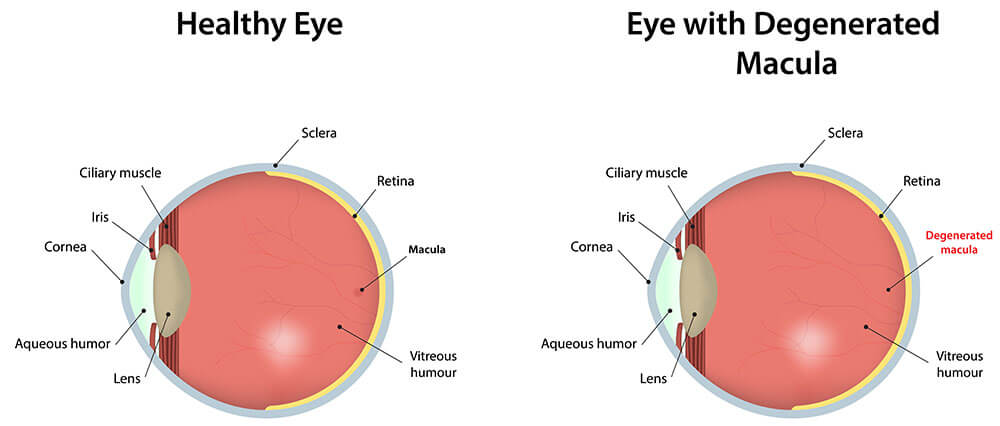Over the past ten years, patients have been participating in a collaborative investigation involving fourteen different centers in the United States to try to answer this important question: Does vitamin supplementation decrease the risk of severe vision loss due to macular degeneration?
This group, known as the Age-Related Eye Disease Study (AREDS), found that taking high levels of antioxidants and zinc reduced the risk of developing wet macular degeneration by 25% and of developing severe vision loss by nearly 20%. Doses and vitamins used in the study are listed here: Vitamin C: 500 mg Zinc (oxide): 80 mg Vitamin E: 400 IU Copper (oxide): 2 mg Beta-carotene: 15 mg.

In addition to the above vitamins and minerals, recent research suggests that lutein may be effective in reducing the progression of macular degeneration.
The optimal doses of lutein have not been established, but some researchers have recommended a dose of 6 mg per day.
It is recommended that you check with your internist before beginning these supplements. Vitamin supplements may conflict with certain other medications.
Also patients with certain illnesses may be intolerant of vitamins and minerals at these dosages. Patients who smoke or who have recently stopped smoking must also consult with their physician before starting these supplements.
For more information and a video tutorial please click on the instructional video below.
A recent study in the Journal of the American Medical Association reported a significant link between cigarette smoking and the risk of development of age-related macular degeneration. In two separate investigations, researchers at the Harvard Medical School evaluated the relationship between smoking and the incidence of macular degeneration in both men and women.
Age-related macular degeneration is the leading cause of severe visual impairment in the elderly, and is responsible for approximately 1.7 million cases of impaired vision in the United States. The prevalence of this disease increases with age and it is the leading cause of new blindness in people over 65.
In this newly released study, smokers were found to have 2 to 3 times the risk of developing age-related macular degeneration as individuals who had never smoked. Past smokers were also found to have an increased risk of developing the condition although this was decreased compared to current smokers.
Age-related macular degeneration is a very significant cause of visual loss in the United States. Although laser treatment is indicated in selected cases, unfortunately most cases are not amenable to treatment. For this reason, it is of great importance to identify important risk factors in order to enable us to prevent this condition.
Colvard-Kandavel Eye Center offers personalized eye care services for patients with routine and complex eye conditions.
Our team is here to help you make an appointment with the specialists that you need.